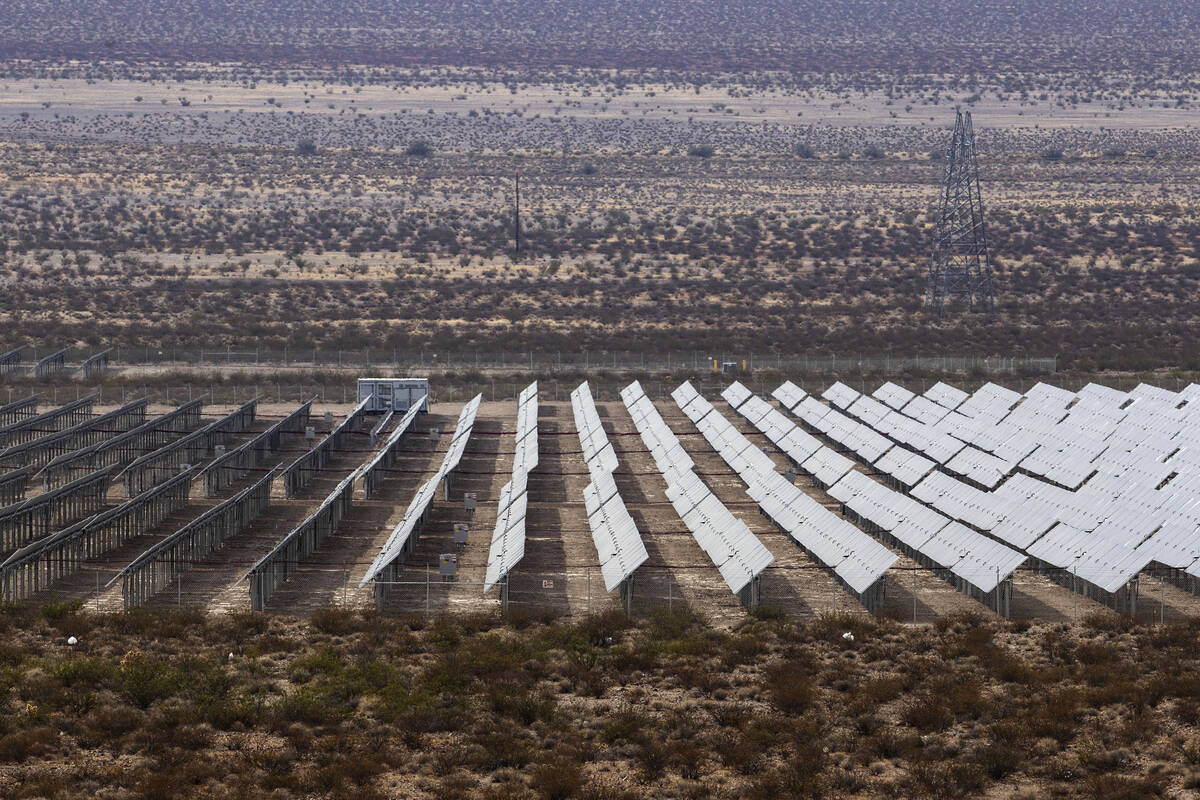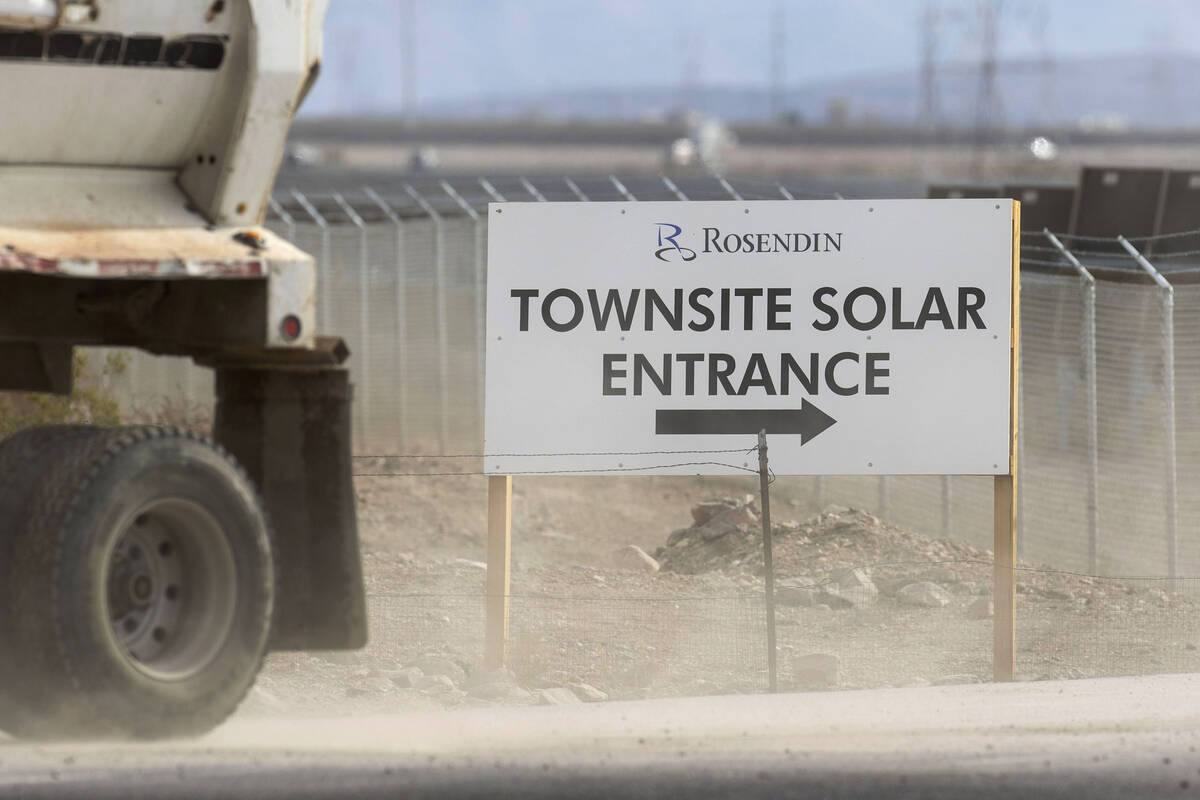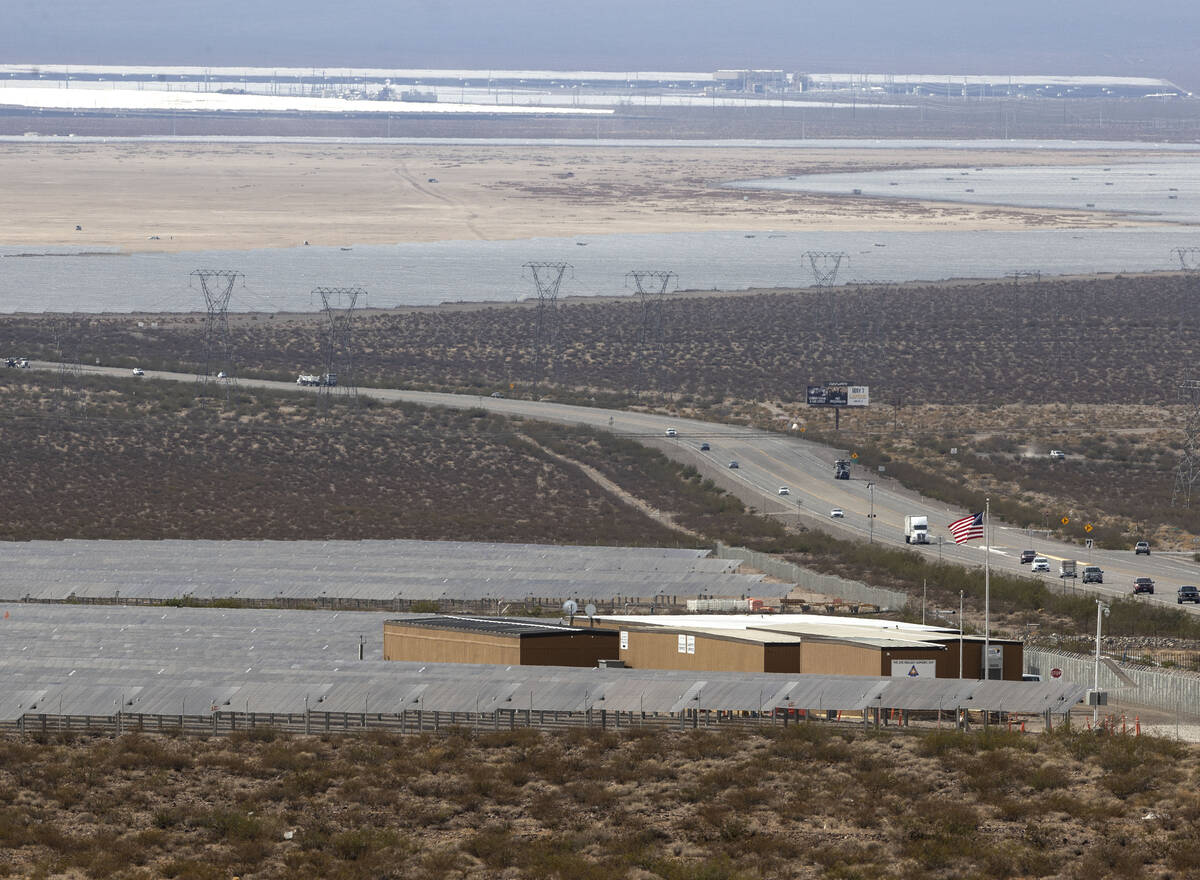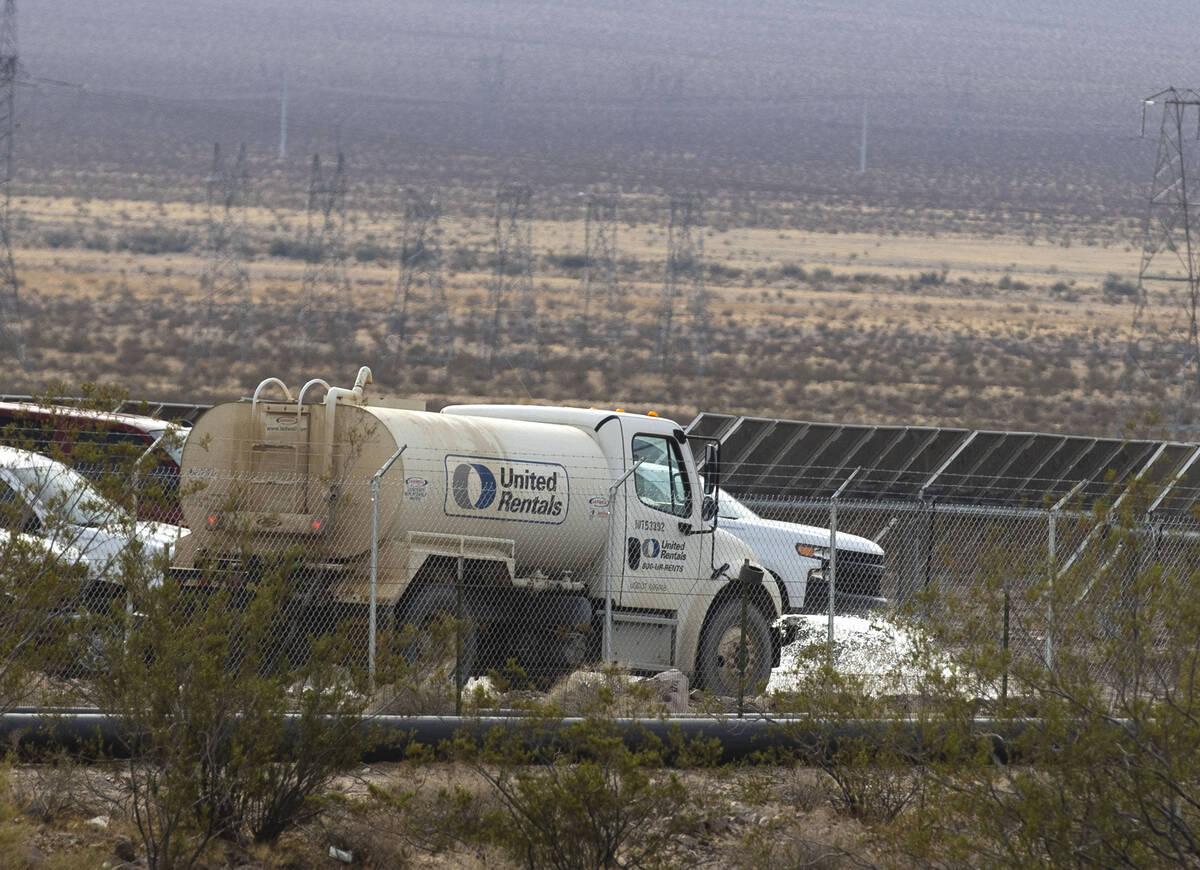Boulder City solar farm fined nearly $220k for air quality violations
A Boulder City solar farm construction site has racked up hundreds of thousands of dollars in fines this year for air quality violations, according to Clark County regulators.
Since April, the county has fined Rosendin Electric nearly $220,000 for failing to control dust during construction of a roughly 1,000-acre solar farm off of Interstate 11. In all but one of the eight instances, Rosendin has not contested the fines.
The county says the company is putting its business interests ahead of complying with air-quality standards.
“Well, from our perspective, they responded by continuing to be out of compliance and making business decisions that are based on how quickly they can get the project done, as opposed to implementing the best practices that are required in our air quality regulations,” said Marci Henson, director of Clark County’s department of environment and sustainability.
Those dust control efforts include keeping the ground wet to prevent dust from blowing away.
The county is capped at issuing a fine of $10,000 per day, per incident, she said.
“There’s not a lot of projects that can bleed $10,000 per day, per incident,” she said. “Because of the scale of this project, it’s so big and they’re going to be selling renewable energy, which is a hot commodity right now, it appears that they’ve made the business decision to do that.”
Henson said her department estimates anywhere from 40 tons to 70 tons of excess dust has blown from the Townsite Solar Garden project.
Dust clouds can cause breathing issues and are particularly challenging for people with existing respiratory conditions, Henson said.
Company responds
During a July hearing with county regulators, Amy Sue Ambrose, environmental director for Rosendin, said the company was making its best effort to control dust on a challenging site, including spraying more than 20 million gallons of water at the site between early May and the end of June.
In a statement, the company said it has taken steps to ensure dust on the site is controlled.
“The health and safety of the residents in Clark County are extremely important to Rosendin, and we understand that proper dust control is crucial, particularly in a desert-living environment,” the company said. “Rosendin is dedicated to monitoring and managing dust control on the Townsite Solar project.”
The company said it uses multiple approaches to control dust clouds in the area.
To date, Rosendin has spent $3 million on dust control, including using six full-time employees to manage dust at the site, the company said.
“Our employees are members of this community, and we value the health and well-being of all members of the Clark County community,” the company said. “We have received fines for dust mitigation, and we remain committed to doing everything we can to control dust. Dust compliance is a top focus for Rosendin, and our overall compliance on this project site has been positive. Rosendin is committed to working with Clark County and addressing the concerns that the community has raised.”
Repeat offenders
Clark County regulators have substantiated 37 of the 49 complaints they have received about the project from the public.
“Can’t breathe from all the dust coming off the solar field!!!!!!,” one person wrote to the county on Sept. 15. “Someone need to take care of this it happens way to often.”
The anonymous complaint said the dust blowing from the project is a problem every day.
In July, another anonymous complaint submitted to the county raised concerns about being unable to see or breathe due to dust blowing.
Boulder City Mayor Kiernan McManus said he’d only received a handful of complaints about the project. Most of the dust coming from the solar farm was not affecting the populated areas of his city, “but there were times where there was certainly an awful lot of dust,” he said.
McManus said he brought up dust pollution concerns over the summer to officials working on the project. He hasn’t heard about or seen issues with the solar farm recently, he said.
The most recent violations happened in September.
Last month, council members in the city approved rezoning a patch of desert to allow for the expansion of the project, despite the planning commission’s recommendation to deny it, the Boulder City Review reported.
A representative of the project told council members that dust control measures could be improved if that has been a problem.
McManus said he supported the expansion because dust typically isn’t a problem with solar farms and project officials told him they have taken steps to ensure the recent issues will not continue.
Fines the ‘cost of doing business’
At the July hearing with the county, David Dean, a dust management program supervisor for the county, said the company has faced similar challenges with dust in the area, but the location of this project has garnered more attention.
He said the root of the problem is Rosendin’s construction plan and process. If the company wanted to correct the problem, it wouldn’t grade off more soil than it could control, he said.
“And that’s their business model. They have a set time limit to finish this in and they’re going to finish it,” Dean said. “And if it means get environmental issues or fines, then they’re going to do it, because it’s the cost of doing business.”
He said the company doesn’t want to change how it does business, so the problems will continue.
Rick Shaffer, division manager for Rosendin Renewable Energy Group, said at the hearing that it’s not the company’s business plan that has caused problems. It’s the rigid terms of the company’s contract, which could cost Rosendin nearly $150,000 per day if it were late, he said.
“We aren’t afforded, unfortunately, the luxury and the time to construct it in the manner that you are suggesting, which is the right way to do it, but we can’t because of our contract and our scheduling and our time,” he said.
A spokesman for the county’s department of environment and sustainability said officials are leaving all options on the table, including dust permit suspension if Rosendin continues to “neglect its duties” to control the dust and protect air quality.
Contact Blake Apgar at bapgar@reviewjournal.com or 702-387-5298. Follow @blakeapgar on Twitter.





















